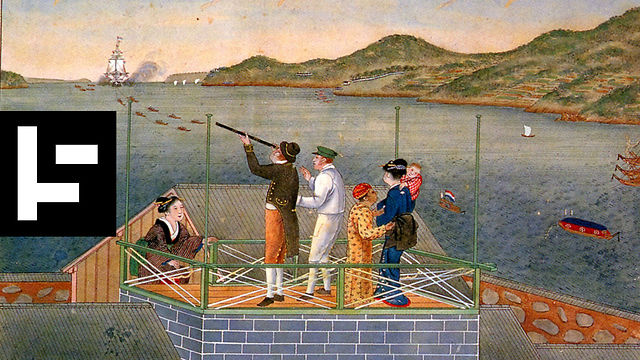Premium Only Content

The Sakoku Edict: Why The Japanese Couldn't Leave Their Own Country For Two Centuries
In the 1600s Japan was not a big fan of Western culture. To emphasize that point it banned its citizens from traveling abroad with a penalty of death if they did for over 200 years.
Sakoku (literally "country in chains" or "lock up of country") was the foreign policy of Japan under which no foreigner or Japanese could enter or leave the country on penalty of death.
The policy was enforced when missionaries from Spain and Portugal came with ambitions to spread the Christian faith in Asia. Christianity was forbidden in Japan and rewards were offered to anyone who will give out the location of Christians to the authorities.
No one was allowed to enter or leave the country. If people were caught leaving it, they would be mercilessly executed. Japanese people who were abroad and wanted to return were also prohibited. Japanese ships were prohibited from leaving Japanese waters and foreign ships were not allowed to approach. The only fleet allowed to dock were the Dutch East India Company, who they trusted.
Almost 220 years after the enforcement of Sakoku, American warships were sent to intimidate the Japanese into trading and in 1853, Japan opened it's borders once again.
-
 3:21
3:21
TC_Woods
4 years agoWhy I love this country
47 -
 0:07
0:07
rumblestaff
4 years agoBournemouth Beach visitors leave their garbage everywhere
2331 -
 1:47
1:47
WKBW
4 years agoCovid-19 closes their businesses, so they rode their bikes across the country
19 -
 1:02
1:02
Just the News
4 years agoQualified Immunity would help police officers do their job in this country
12.5K2 -
 4:47
4:47
BuckBryant
4 years agoCountry Sunday 1.0
340 -
 1:27
1:27
EntertainmentVideos
4 years agoKajal Aggarwal with Mom Snapped at their residence as they leave for her Wedding | SpotboyE
-
 1:04
1:04
Proverbs.Club
4 years ago偏りはなく、私の毎日のパンのみ-箴言30:7-9 - Japanese Audio
125 -
 0:24
0:24
Proverbs.Club
4 years ago悪役の罪-箴言29:6 - Japanese Audio
57 -
 0:26
0:26
Proverbs.Club
4 years ago計画者の愚かさ-箴言24:8-9 - Japanese Audio
531 -
 0:26
0:26
Proverbs.Club
4 years agoレッドピルザフール-箴言26:5 - Japanese Audio
43